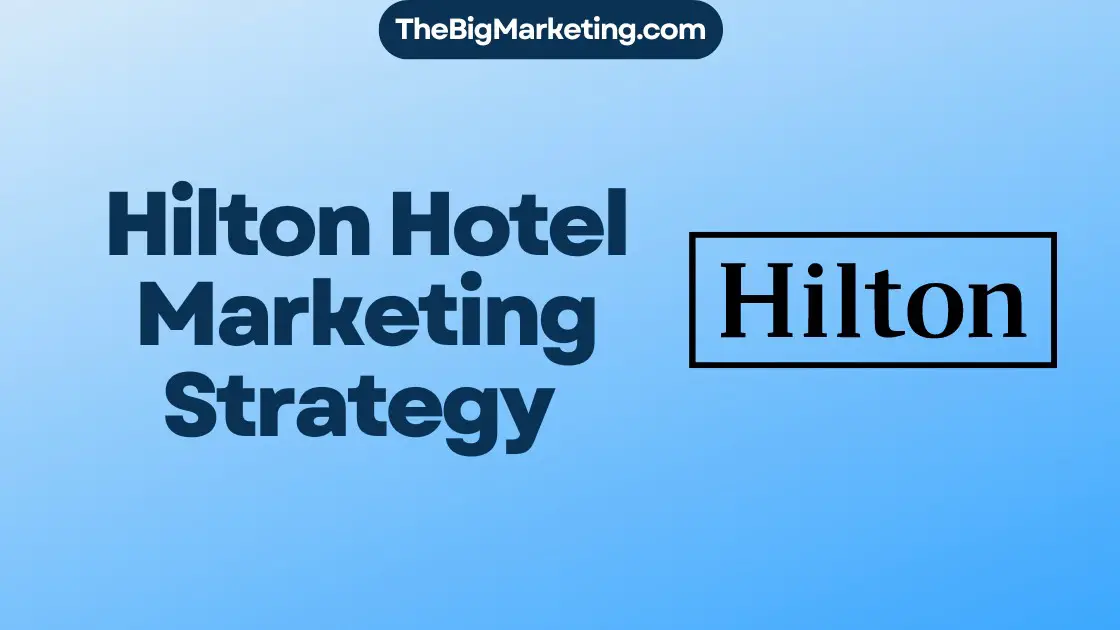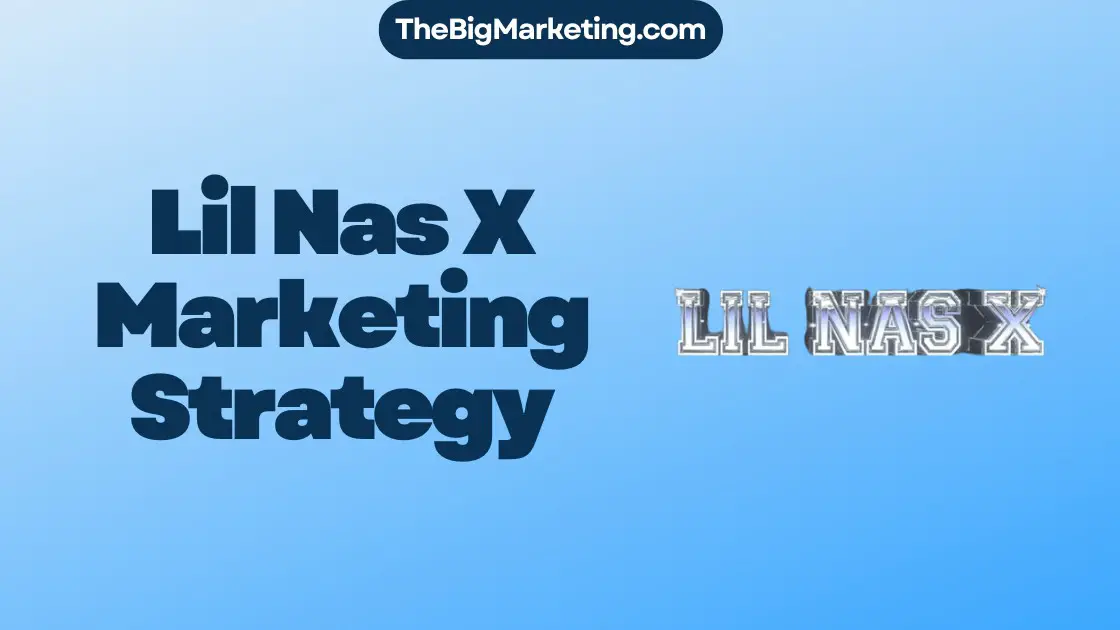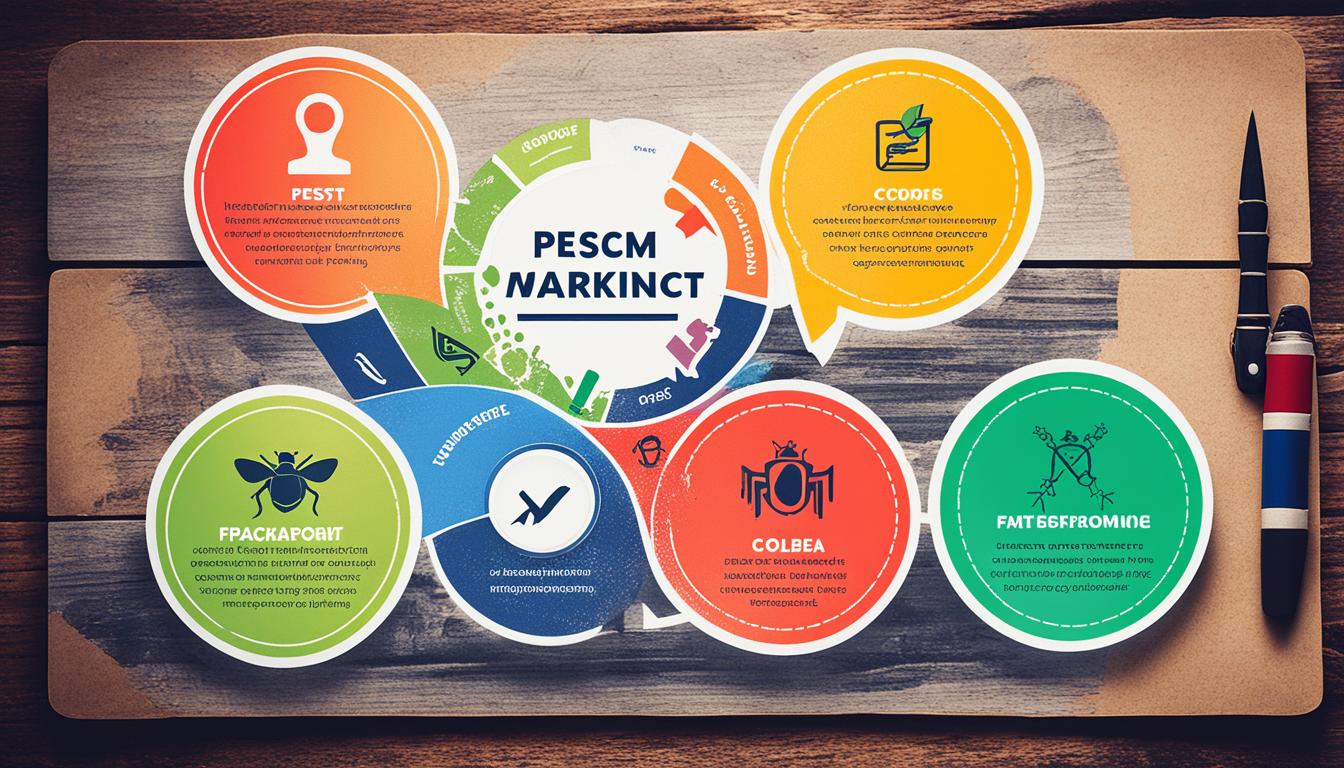Interviewing for a Marketing Communications Specialist position requires thorough preparation and a keen understanding of the field’s dynamics. This role demands a unique blend of creativity, strategic thinking, and excellent communication skills. Candidates are often faced with questions that test their ability to plan and execute marketing strategies, manage brand communication, and evaluate the effectiveness of marketing campaigns.
To help you navigate through your interview with confidence, we’ve compiled a list of the top 33 Marketing Communications Specialist interview questions and answers. This collection is designed to give you an insight into what employers are looking for in a successful candidate. By reviewing these questions and formulating your responses, you’ll be better positioned to demonstrate your qualifications and professional prowess during your interview.
Marketing Communications Specialist Interview Preparation Tips
| Focus Area | Details | Tips |
|---|---|---|
| Understanding of the Role | Familiarize yourself with the specifics of a Marketing Communications Specialist position, including daily responsibilities and long-term goals. | Research the role and understand how it fits within the company’s marketing department. Prepare to discuss how your skills align with these tasks. |
| Company Knowledge | Gain a deep understanding of the company’s products, services, culture, and target market. | Review the company’s website, press releases, and social media channels to understand its brand voice, marketing strategies, and customer base. |
| Marketing Strategies | Be prepared to talk about your experience with developing and implementing marketing strategies. | Reflect on your past work experiences, highlighting specific strategies you’ve developed or contributed to, and the outcomes of those initiatives. |
| Content Creation | Show your expertise in creating various types of marketing communications materials. | Bring samples of your work or prepare a portfolio. Be ready to discuss the design choices and strategies behind your most successful projects. |
| Digital Marketing | Understand the role of digital marketing in today’s business world. | Stay updated on current digital marketing trends, including SEO, PPC, social media, and email marketing. Be prepared to discuss their implementation. |
| Analytics and Measurement | Know how to measure the success of marketing campaigns. | Be familiar with tools and metrics used for measuring campaign success. Be ready to talk about how you’ve used data to inform marketing decisions. |
| Problem-Solving | Be prepared to discuss how you’ve handled challenges in the past. | Think of specific examples when you’ve overcome obstacles in your marketing campaigns, including what you learned and how you adapted. |
| Technical Skills | Have a good understanding of tools and software relevant to marketing communications. | Familiarize yourself with the most commonly used marketing tools and software, highlighting your proficiency during the interview. |
Technical Area
- SEO Tools: Experience with tools like Google Analytics and SEMrush.
- Social Media Platforms: Proficiency in managing and advertising on platforms such as Facebook, Instagram, and LinkedIn.
- Content Management Systems (CMS): Familiarity with WordPress or similar CMS for website content creation and management.
- Email Marketing Platforms: Knowledge of platforms like Mailchimp or Constant Contact for executing email marketing campaigns.
- Design Software: Skills in using Adobe Creative Suite or Canva for creating marketing materials.
Focusing on these areas will not only help you prepare for your Marketing Communications Specialist interview but also position you as a well-rounded candidate ready to take on the challenges of the role.
1. Can You Walk Us Through Your Experience in Developing Marketing Communication Strategies?
Tips to Answer:
- Highlight specific examples where your strategies directly contributed to business goals, focusing on measurable results.
- Explain your thought process and how you adapt strategies based on target audience insights and market research.
Sample Answer: In my previous role, I spearheaded the development of an integrated marketing communication strategy that aimed to increase brand awareness and sales. I started by analyzing our target audience’s preferences and behaviors, which informed our content creation across digital and traditional platforms. By aligning our messaging with audience expectations and continuously optimizing our approach based on analytics, we saw a 30% increase in customer engagement and a 15% uplift in sales over six months. My approach always involves being agile and responsive to data, ensuring each campaign is tailored for maximum impact.
2. How Do You Stay Updated With the Latest Trends in Marketing Communications?
Tips to Answer:
- Stay proactive by subscribing to leading marketing communication newsletters and blogs. This not only keeps you informed but also provides insights into how trends can be applied practically.
- Engage actively in professional networks and forums. Sharing and discussing ideas with peers can expose you to new perspectives and innovative approaches in marketing communications.
Sample Answer: I make it a priority to stay abreast of the latest trends by dedicating time each week to read industry publications and attend webinars. I’ve subscribed to several newsletters like MarketingProfs and AdWeek, which provide me with a steady stream of current information and case studies. Besides, I actively participate in LinkedIn groups and marketing forums. This engagement allows me to exchange ideas with peers and experts, ensuring I can apply the most up-to-date strategies in my work.
3. Describe A Successful Marketing Campaign You Were Involved In. What Was Your Role, And What Were The Results?
Tips to Answer:
- Focus on a specific campaign where you played a significant role and can discuss measurable outcomes.
- Highlight teamwork, your unique contributions, and how you addressed challenges during the campaign.
Sample Answer: In my previous role as a Digital Marketing Manager, I spearheaded an online campaign for a new product launch that aimed to increase brand awareness and sales. My primary responsibility was to develop and implement a multi-channel strategy, including social media, email marketing, and PPC advertising. By analyzing market trends and customer behavior, I tailored our content to resonate with our target audience, leading to a 40% increase in web traffic and a 25% rise in sales within the first three months. Handling this campaign taught me the importance of data-driven decisions and agility in marketing strategies.
4. How Do You Approach Creating Content For Different Marketing Channels?
Tips to Answer:
- Understand the unique characteristics and audience preferences of each marketing channel to tailor your content effectively.
- Analyze past content performance on different channels to inform your strategy and content creation process.
Sample Answer: In approaching content creation for diverse marketing channels, I start by segmenting my audience and understanding the specific platform’s nuances. For instance, Instagram demands high-quality visuals and concise messaging, while LinkedIn benefits from more professional and detailed content. I leverage analytics to see what has worked in the past, continually testing different content formats and messages. By staying agile and being willing to adjust my approach based on performance metrics, I ensure that the content resonates well with the target audience on each channel. This method has consistently helped me increase engagement and achieve campaign goals.
5. What Tools Or Software Do You Use For Managing And Analyzing Marketing Campaigns?
Tips to Answer:
- Mention specific tools and software that you have experience with, highlighting how they have helped you in managing and analyzing your marketing campaigns effectively. This demonstrates your familiarity with industry-standard tools.
- Discuss how you use these tools to derive actionable insights that inform your marketing strategy, which shows your analytical skills and your ability to leverage technology to achieve marketing objectives.
Sample Answer: In my experience, I’ve leveraged a variety of tools for managing and analyzing marketing campaigns. For instance, I frequently use Google Analytics and SEMrush for tracking website traffic and campaign performance. These tools provide me with deep insights into user behavior and campaign effectiveness, which enables me to make data-driven decisions. Additionally, for email marketing campaigns, I rely on Mailchimp due to its user-friendly interface and comprehensive analytics. It helps me segment my audience and tailor my messaging, which has significantly improved engagement rates. Lastly, Hootsuite has been indispensable for scheduling and analyzing social media content across different platforms.
6. How Do You Measure The Success Of A Marketing Communication Campaign?
Tips to Answer:
- Focus on specific metrics you have used in the past to gauge campaign effectiveness, such as conversion rates, engagement levels, and ROI.
- Explain how you adjust strategies based on data insights to improve campaign performance.
Sample Answer: In measuring the success of a marketing communication campaign, I first set clear, achievable goals aligned with business objectives. I utilize a mix of quantitative and qualitative metrics, such as engagement rates on social media, website traffic analytics, and conversion rates. I also pay close attention to the feedback received through customer surveys and social media interactions to gauge the audience’s sentiment. By analyzing this data, I can identify what resonates with the audience and refine my strategies to enhance future campaign performance. Continuous monitoring and adaptation based on these insights are key to my approach.
7. Can You Provide An Example Of A Time When You Had To Deal With A Crisis Communication Situation?
Tips to Answer:
- Reflect on a specific crisis communication situation where you played a key role in managing the communication efforts. Highlight your strategic approach and the steps taken to mitigate the situation.
- Emphasize the lessons learned from the experience and how it has prepared you to handle similar situations in the future more effectively.
Sample Answer: In my previous role, we faced a product recall that threatened our brand’s reputation. I led the crisis communication team and immediately implemented a transparent communication strategy across all channels. We issued a public apology, provided regular updates about the recall process, and offered compensation to affected customers. I also worked closely with the customer service team to ensure they were equipped to handle inquiries and complaints effectively. Through consistent and empathetic communication, we managed to restore trust in our brand. This experience taught me the importance of honesty and proactivity in crisis situations.
8. How Do You Ensure Consistency In Messaging Across Various Marketing Channels?
Tips to Answer:
- Highlight your ability to maintain a unified brand voice and message through the use of brand guidelines and regular team communications.
- Discuss your experience in using analytics to monitor messaging effectiveness across channels and adjust strategies as needed.
Sample Answer: In my previous role, I prioritized consistency by developing comprehensive brand guidelines that included voice, tone, and visual elements accessible to all team members. I conducted regular meetings to ensure everyone was aligned with these guidelines. Additionally, I leveraged analytics to assess how our messaging was performing across different platforms and made data-driven adjustments to our approach. This strategy helped us maintain a cohesive brand identity and improve engagement across our marketing channels.
9. What Is Your Experience With Social Media Marketing And How Do You Leverage It In Your Strategies?
Tips to Answer:
- Highlight specific social media campaigns you’ve led or contributed to, emphasizing the strategies used and the outcomes achieved.
- Discuss how you stay informed on the evolving landscape of social media to continuously improve your tactics and engage effectively with audiences.
Sample Answer: In my previous role, I spearheaded several social media campaigns aimed at increasing brand awareness and customer engagement. By analyzing our target audience’s behavior, I tailored content to their preferences, which significantly boosted our engagement rates. I regularly use analytics tools to review the performance of our posts and campaigns, allowing me to adjust our strategy in real-time for optimal results. Additionally, I prioritize staying up-to-date with social media trends through webinars and industry blogs, which empowers me to leverage new platforms and features creatively in our marketing strategies. This proactive approach has consistently enhanced our social media presence and contributed positively to our marketing goals.
10. How Do You Collaborate With Other Teams, Such As Sales Or Product Development, To Align Marketing Communication Efforts?
Tips to Answer:
- Discuss specific strategies or tools you use to facilitate effective communication and collaboration with other departments.
- Share an example of a successful project where cross-departmental collaboration was key to achieving the marketing objectives.
Sample Answer: In my experience, collaboration with teams like sales and product development is crucial. I start by setting up regular cross-functional meetings to ensure alignment on goals and messaging. Utilizing project management tools has also been instrumental in keeping everyone on the same page. For instance, on a recent launch campaign, I worked closely with the product team to understand the features and benefits of the new product. This enabled me to craft targeted messaging that resonated with our audience, leading to a 20% increase in lead generation compared to previous campaigns.
11. Have You Worked With Influencers Before? If So, How Did You Select And Manage Them?
Tips to Answer:
- Highlight your strategy for identifying influencers that align with the brand’s values and target audience to ensure an authentic partnership.
- Explain your method for managing and maintaining relationships with influencers, including clear communication of expectations and regular check-ins to monitor the campaign’s progress.
Sample Answer: Yes, I have extensive experience working with influencers. My approach starts with detailed research to find influencers whose audience and values align with our brand. This ensures authenticity and resonance with our target market. I prioritize influencers who engage actively with their followers because engagement rates are often more indicative of influence than follower count alone. After selecting influencers, I establish clear goals and expectations for the campaign. I manage these relationships through regular communication, providing them with all the necessary resources and support to succeed. Tracking the campaign’s performance allows us to adjust strategies in real-time, ensuring we meet our desired outcomes.
12. How Do You Approach Creating A Brand Voice And Tone For A Company?
Tips to Answer:
- Reflect on the company’s values, target audience, and industry trends to ensure the brand voice resonates and stands out.
- Include examples of past experiences where you successfully defined or evolved a brand’s voice to meet business objectives and connect with the audience.
Sample Answer: In my approach to crafting a brand voice and tone, I start by diving deep into understanding the company’s core values, mission, and the demographics of the target audience. I analyze the competitive landscape to identify a unique space the brand can own. For instance, at my last job, I led a rebranding project where we shifted our tone from formal to more conversational and approachable, which significantly increased our engagement rates across channels. I consistently gather feedback from the audience and adjust the tone to ensure it remains relevant and engaging.
13. Can You Explain Your Experience With Email Marketing Campaigns And How You Optimize Them For Engagement?
Tips to Answer:
- Focus on specific strategies you have used to increase open rates and click-through rates, such as A/B testing or segmenting your email list.
- Highlight any noteworthy results from your campaigns, such as improved conversion rates or significant increases in subscriber engagement.
Sample Answer: In my previous role, I managed multiple email marketing campaigns, focusing on optimizing them for higher engagement. I implemented A/B testing for subject lines to determine which ones captured our audience’s attention best, leading to a 25% increase in open rates. Additionally, I segmented our email list based on user behavior, which allowed us to tailor our content more effectively. This personalization strategy boosted our click-through rates by 15%. I also regularly analyzed campaign metrics to refine our approach continually, ensuring each campaign performed better than the last.
14. How Do You Prioritize And Manage Multiple Projects With Tight Deadlines?
Tips to Answer:
- Understand the scope and requirements of each project to accurately prioritize tasks based on urgency and importance.
- Utilize time management tools and techniques to allocate your time efficiently and keep track of deadlines.
Sample Answer: In my experience, prioritizing and managing multiple projects starts with a clear understanding of each project’s deadlines and goals. I categorize tasks by their urgency and impact on the project’s success. This approach allows me to focus on what needs immediate attention while not losing sight of longer-term goals. I rely on project management software to organize tasks and deadlines, ensuring nothing falls through the cracks. Effective communication with stakeholders is also crucial; it helps set realistic expectations and keeps everyone informed of progress and any potential delays. This method has consistently helped me deliver quality work within tight deadlines.
15. What Metrics Do You Consider Most Important When Evaluating The Success Of A Marketing Campaign?
Tips to Answer:
- Focus on specific metrics that directly relate to the campaign’s objectives, such as conversion rates, engagement rates, or ROI.
- Highlight your ability to analyze data to draw actionable insights, demonstrating your analytical skills and strategic thinking.
Sample Answer: In assessing the success of a marketing campaign, I prioritize metrics closely aligned with the campaign’s initial goals. For instance, if the aim was to increase brand awareness, I would look at engagement rates, social shares, and the reach of our content. On the other hand, for campaigns aimed at driving sales, conversion rate and ROI become my focal points. I use tools like Google Analytics and social media insights to track these metrics, allowing me to understand what resonates with our audience and adjust strategies accordingly. This data-driven approach helps ensure that our marketing efforts are effective and aligned with our strategic goals.
16. What Metrics Do You Consider Most Important When Evaluating The Success Of A Marketing Campaign?
Tips to Answer:
- Focus on how you align your chosen metrics with the specific goals of each marketing campaign, demonstrating your ability to tailor your evaluation approach to different objectives.
- Mention your experience with both quantitative and qualitative metrics, showcasing your understanding of the comprehensive nature of campaign analysis.
Sample Answer: In assessing the success of marketing campaigns, I prioritize metrics that closely align with our initial objectives. For instance, if our goal is brand awareness, I look at social media engagement rates and website traffic. For lead generation campaigns, conversion rates and the cost per lead are my go-to metrics. I also believe in the power of customer feedback and sentiment analysis to gauge the campaign’s impact on brand perception. My approach involves a mix of these metrics to ensure we’re not only achieving but also understanding the depth of our success.
17. Have You Ever Had To Deal With A Marketing Campaign That Didn’t Perform As Expected? How Did You Handle It?
Tips to Answer:
- Reflect on a specific instance where a marketing campaign did not meet its goals, focusing on your analysis, reaction, and the steps you took to address the situation.
- Highlight your ability to learn from the experience, making adjustments to strategies and demonstrating resilience and adaptability.
Sample Answer: In my previous role, I led a campaign that underperformed against our key metrics. Initially, I conducted a thorough analysis to understand the gaps. I discovered that our target audience’s needs had shifted, and our message wasn’t resonating as expected. I quickly gathered the team to brainstorm and pivot our approach, focusing on more relevant content and channels that our audience engaged with. We also increased our A/B testing to better understand audience preferences. This responsive action not only improved the campaign’s performance but also provided valuable insights for future projects. It was a testament to being agile and responsive to market dynamics.
18. How Do You Incorporate Storytelling Into Your Marketing Communications?
Tips to Answer:
- Share specific examples of when you used storytelling to make a marketing campaign more engaging and memorable.
- Explain the process of crafting the story, including how you identified the key message and tailored it to resonate with the target audience.
Sample Answer: In my experience, incorporating storytelling into marketing communications vastly enhances their impact. For instance, while working on a campaign for a health and wellness brand, I crafted a series of stories around real-life customer successes. I began by identifying the core message of transformation and hope. Then, I interviewed customers to gather authentic narratives that aligned with our message. By weaving these stories into our content across social media, email, and blog posts, we not only saw an increase in engagement but also a stronger emotional connection with our brand. This approach proved that stories could turn ordinary content into memorable experiences for our audience.
19. Can You Provide an Example of A Successful Event or Trade Show You Managed From A Marketing Perspective?
Tips to Answer:
- Focus on specific metrics that demonstrate the event’s success, such as attendee engagement, lead generation, and post-event sales or follow-ups.
- Highlight your role in planning, executing, and post-event analysis, emphasizing teamwork, creativity, and adaptability.
Sample Answer: In my previous role, I led the marketing team for a major tech trade show. We aimed to increase brand visibility and generate leads. I coordinated with the sales team to identify target audiences and tailored our pre-event marketing to attract them. We utilized social media, email campaigns, and industry partnerships effectively. During the event, we engaged attendees with interactive demos and collected contact information for follow-up. Post-event, we launched a targeted email campaign, which resulted in a 25% increase in qualified leads compared to the previous year. My focus on strategic planning, execution, and follow-up played a key role in this achievement.
20. How Do You Approach Competitor Analysis and Use It To Inform Your Marketing Strategies?
Tips to Answer:
- Focus on how you systematically gather and analyze competitor data to identify market trends, opportunities, and threats.
- Highlight how you use this analysis to differentiate your marketing strategies and create competitive advantages.
Sample Answer: In my previous role, I regularly conducted competitor analysis by monitoring their online presence, marketing campaigns, and customer feedback. I used tools like SEMrush for SEO comparisons and social listening tools for brand sentiment analysis. This approach allowed me to spot gaps in our competitors’ strategies and areas where we could innovate or improve. For instance, noticing a competitor’s lack of video content, I spearheaded a video marketing strategy that significantly increased our engagement and market share. This proactive stance ensured we stayed ahead and resonated more effectively with our target audiences.
21. What Experience Do You Have With SEO And How Do You Integrate It Into Your Content Strategy?
Tips to Answer:
- Highlight specific SEO projects or initiatives you’ve led or contributed to, emphasizing the measurable outcomes such as increased traffic or improved search rankings.
- Discuss your approach to keyword research and how you use SEO tools to inform content creation, ensuring you mention how you align this with user intent and business goals.
Sample Answer: In my previous role, I was responsible for revamping our content strategy to be more SEO-focused. I started by conducting thorough keyword research to identify opportunities that aligned with our target audience’s search intent. I then used these insights to guide our content creation, ensuring each piece was optimized for both search engines and our readers. This approach led to a significant increase in organic traffic by 40% over six months. I also closely monitored performance metrics and adjusted our strategy accordingly, ensuring we remained competitive and relevant.
22. How Do You Ensure That Your Marketing Communications Are Compliant With Relevant Regulations And Guidelines?
Tips to Answer:
- Research and stay updated on all regulations relevant to your industry, including global ones if your marketing reaches an international audience.
- Implement a review process involving legal or compliance experts before releasing any marketing materials.
Sample Answer: In my role, ensuring compliance starts with staying informed. I regularly review updates from regulatory bodies and attend webinars. For every campaign, I maintain a checklist of compliance requirements specific to our industry and audience. Before any material goes public, it undergoes a thorough review by our legal team. I’ve also established a strong relationship with compliance specialists to quickly address any potential issues. This proactive approach has helped prevent legal complications and maintain our brand’s integrity.
23. Can You Discuss A Time When You Had To Work On A Tight Budget For A Marketing Campaign?
Tips to Answer:
- Highlight your ability to be creative and resourceful in utilizing the available budget to maximize impact.
- Emphasize the importance of setting clear priorities and focusing on strategies that offer the highest return on investment (ROI).
Sample Answer: In my previous role, we faced a significant budget cut for a key product launch. Recognizing the challenge, I meticulously reviewed our planned activities to identify high-impact, low-cost tactics. I leveraged social media platforms and email marketing, focusing on engaging content that resonated with our target audience, thus ensuring a wide reach without substantial financial investment. By closely monitoring performance metrics, I was able to quickly reallocate resources to the most effective channels, significantly increasing our campaign’s effectiveness within the constrained budget. This experience taught me the value of agility and strategic thinking in overcoming financial limitations.
24. How Do You Approach A/B Testing And Use It To Optimize Marketing Communications?
Tips to Answer:
- Share specific examples from your past work where A/B testing led to improved marketing outcomes.
- Explain the process you follow to identify variables, set up the test, analyze results, and implement findings.
Sample Answer: In my previous role, I was tasked with increasing the open rates of our email marketing campaigns. To achieve this, I initiated an A/B testing process where we experimented with different subject lines. For one month, we sent out two variations of our weekly newsletter to a segmented portion of our audience. Variation A used a direct approach, stating the benefit within the subject line, while Variation B used a question-based approach to invoke curiosity. I meticulously analyzed the open rates and click-through rates of each variation. The question-based subject lines showed a 15% higher open rate. We adopted this approach for our future campaigns, resulting in a significant improvement in our engagement metrics. This experience taught me the importance of data-driven decisions in optimizing marketing communications.
25. What Do You Think Are the Key Skills Needed To Excel As A Marketing Communications Specialist?
Tips to Answer:
- Focus on demonstrating how your unique blend of skills contributes to effective marketing communications, including examples of how you’ve applied these skills in past roles.
- Discuss the importance of staying updated with industry trends and how this knowledge helps in crafting strategies that resonate with your target audience.
Sample Answer: In my view, excelling as a Marketing Communications Specialist requires a mix of creativity, analytical thinking, and adeptness in digital marketing tools. Creativity helps in designing compelling campaigns that capture the audience’s attention. Analytical skills are crucial for interpreting data to refine strategies and achieve better outcomes. My experience has taught me the significance of staying ahead with emerging trends, enabling me to adapt and innovate. For instance, by leveraging data analytics, I’ve successfully increased campaign engagement rates by 30% in my previous role. Effective communication and teamwork are also essential, as they enhance collaboration across departments, ensuring a unified brand message.
26. How Do You Keep Yourself Motivated And Creative In Your Role?
Tips to Answer:
- Reflect on past successes and learn from failures to maintain a positive outlook and drive.
- Stay engaged with industry trends, attend workshops, and participate in creative challenges to fuel your creativity and motivation.
Sample Answer: In my role, staying motivated and creative is crucial. I regularly set personal goals aligned with team objectives, which keeps me focused and driven. Celebrating small wins and learning from setbacks helps maintain my enthusiasm. I also dedicate time each week to explore industry trends and new tools, ensuring my strategies are innovative. Participating in creative challenges within my network pushes my boundaries and introduces fresh perspectives. This blend of goal-setting, continuous learning, and embracing challenges keeps me motivated and creatively sharp.
27. Can You Provide An Example Of A Successful Cross-Channel Marketing Campaign You Developed?
Tips to Answer:
- Reflect on your past experiences where you effectively utilized multiple platforms (like social media, email, web, etc.) to ensure a cohesive message that drove significant engagement or sales. Highlight how these integrated efforts led to measurable success.
- Focus on the strategy behind the campaign including the selection of channels, the target audience, and the key messages. Explain how these elements were aligned to achieve the campaign goals.
Sample Answer: In my previous role, I spearheaded a cross-channel marketing campaign for a new product launch that aimed to engage our target demographic across social media, email, and in-store promotions. I started by defining our target audience’s preferences and behaviors, which informed our content strategy across each platform. On social media, we created teaser videos that generated buzz, while our email campaign provided exclusive early access to our subscribers. In-store, we offered limited-time discounts to encourage immediate purchases. This cohesive approach resulted in a 50% increase in engagement rates on social media and a 25% uplift in sales during the first month post-launch, demonstrating the power of a well-coordinated cross-channel strategy.
28. How Do You Approach Building And Maintaining Relationships With Media Contacts?
Tips to Answer:
- Focus on personalizing your interactions with media contacts, showing genuine interest in their work and how your content can benefit their audience.
- Highlight the importance of mutual benefit in these relationships, emphasizing how you strive to provide valuable, newsworthy content that aligns with their publication’s goals and interests.
Sample Answer: In my experience, building and maintaining relationships with media contacts starts with understanding their needs and interests. I make it a point to regularly reach out, not just when I need something, but to share information that aligns with their audience’s interests. This could be through sharing industry insights, offering exclusive content, or simply checking in to understand their current focus areas. I believe in a two-way communication street, where I’m not just asking but also offering value. This approach has helped me secure consistent coverage and develop long-standing partnerships.
29. How Do You Handle Feedback And Criticism On Your Marketing Communications Work?
Tips to Answer:
- Reflect on how you view feedback as a tool for growth and improvement, demonstrating your ability to maintain a positive attitude and use criticism constructively.
- Share specific examples of how you have incorporated feedback to enhance your projects, highlighting your adaptability and commitment to excellence.
Sample Answer: In my career, I’ve always seen feedback and criticism as essential for my professional development. I actively seek it out from peers, supervisors, and clients to understand different perspectives and areas for improvement. For instance, during a recent campaign, I received feedback that the messaging was not resonating with our target audience as effectively as we hoped. I took this as an opportunity to revisit our strategy. By collaborating with the team, we refined our approach, focusing more on customer pain points, which significantly improved the campaign’s performance. This experience reinforced my belief in the value of listening and adapting, ensuring we deliver the best possible outcomes.
30. What Do You Think Are The Biggest Challenges Facing Marketing Communications Today, And How Do You Address Them?
Tips to Answer:
- Reflect on current trends in marketing communications, such as the rise of digital media, and consider how these trends impact strategy and execution.
- Discuss the importance of adaptability and continual learning to stay ahead of rapid changes in technology and consumer behavior.
Sample Answer: In my view, one of the biggest challenges in marketing communications today is keeping pace with the rapid evolution of digital media. Strategies that worked yesterday may not be as effective today due to shifts in consumer behavior and technology. To address this, I prioritize staying updated with industry news and adopting new tools and platforms as they become relevant. For example, I’ve integrated social media analytics into our strategy to better understand our audience and tailor our messages more effectively. This approach has not only helped in engaging our target audience more efficiently but also in achieving higher ROI from our campaigns.
31. How Do You Ensure That Your Marketing Communications Are Aligned With The Business Goals And Objectives?
Tips to Answer:
- Understand the company’s business goals and objectives from the outset and regularly communicate with key stakeholders to ensure alignment.
- Use data and analytics to measure the impact of marketing communications on achieving business goals, and adjust strategies as needed.
Sample Answer: In my role, I start by thoroughly understanding the business goals and objectives through meetings with senior management and continuous dialogue with various departments. This ensures that every piece of marketing communication, whether it’s a social media post or an email campaign, is designed to contribute towards these goals. I also set specific KPIs for each campaign that directly relate to the business objectives. Regularly analyzing these KPIs and the campaign performance allows me to adjust tactics in real time, ensuring that our marketing efforts are always contributing positively towards the company’s ambitions.
32. Can You Discuss A Time When You Had To Work On A Multicultural Marketing Campaign? How Did You Approach It?
Tips to Answer:
- Reflect on a specific instance where you were involved in a multicultural marketing campaign, highlighting the diversity of the target audience and the strategies you used to engage them effectively.
- Emphasize the importance of cultural sensitivity and how it influenced your communication methods, content creation, and overall marketing strategies to ensure inclusivity and relevance.
Sample Answer: In a previous role, I led a marketing campaign targeting customers across Asia and Latin America. Recognizing the cultural diversity, my approach was to first conduct thorough research on each market’s specific cultural norms and preferences. I worked closely with local teams to gain insights and ensure our message was culturally sensitive and resonant. We created tailored content for each region, focusing on the unique aspects that appealed to each audience, and utilized local influencers to increase our campaign’s credibility and reach. This strategy resulted in a significant increase in engagement rates and a positive reception from the targeted communities.
33. What Do You Think Sets You Apart From Other Candidates Applying For This Position?
Tips to Answer:
- Focus on unique experiences or skills that directly relate to the job requirements, emphasizing how they make you a strong fit for the role.
- Share specific examples or achievements that demonstrate your exceptional abilities or work ethic, making sure they align with what the company values.
Sample Answer: One aspect that distinguishes me is my extensive experience in leveraging data analytics for strategic marketing decisions. In my previous role, I led a campaign that exceeded our lead generation targets by 30% through a data-driven approach. I analyzed customer behavior and market trends to refine our messaging, which significantly improved engagement rates. My ability to blend creativity with analytical insights allows me to develop compelling, results-oriented marketing strategies.
Conclusion
In wrapping up, the journey through these top 33 Marketing Communications Specialist interview questions and answers aims to equip you with a robust understanding of what potential employers might expect. Remember, the key to excelling in any interview is preparation, understanding the core competencies of the role, and being able to articulate how your skills and experiences align with the company’s needs. As you reflect on these questions and craft your responses, focus on your unique value propositions, real-world examples that demonstrate your expertise, and your passion for marketing communications. Good luck, and may your preparation open the door to a rewarding career as a Marketing Communications Specialist.






